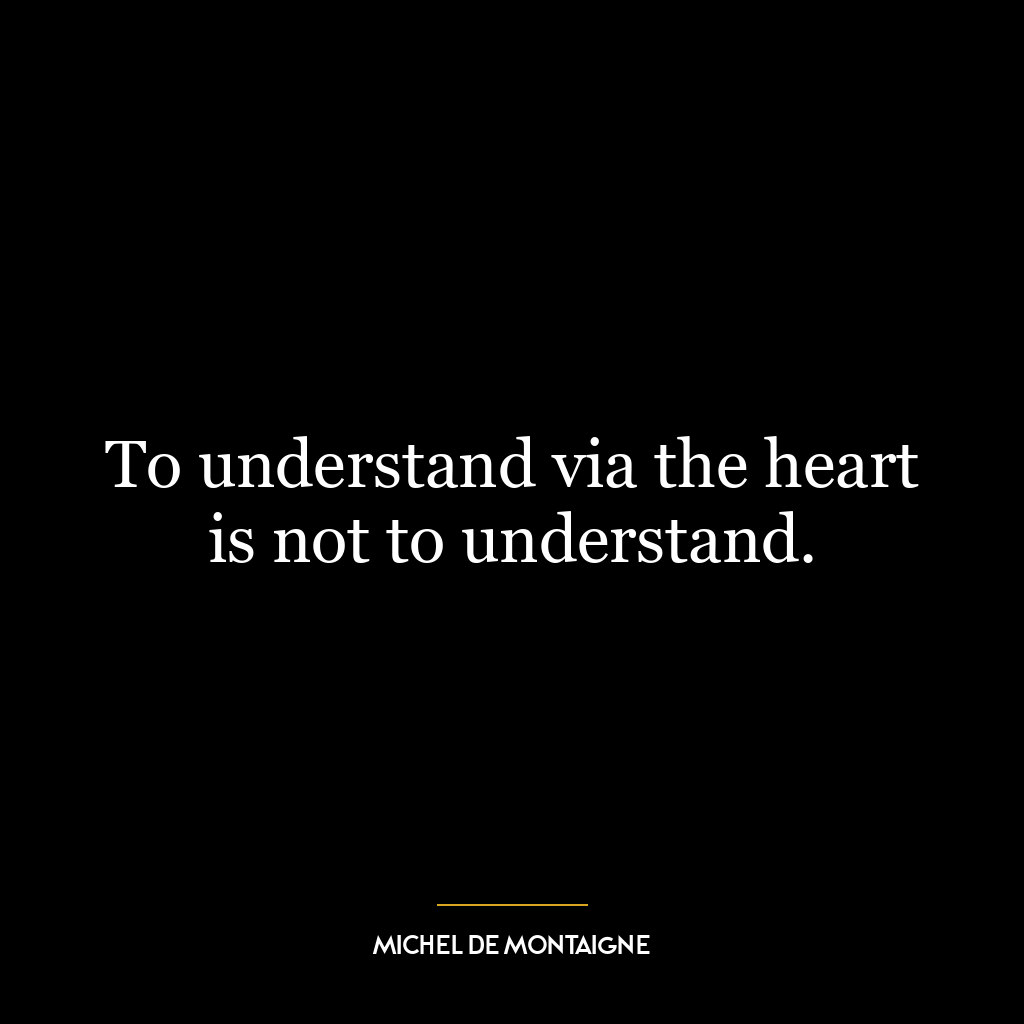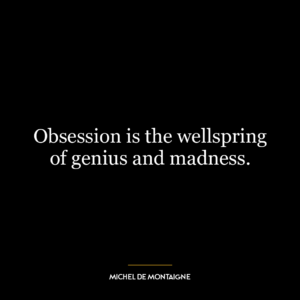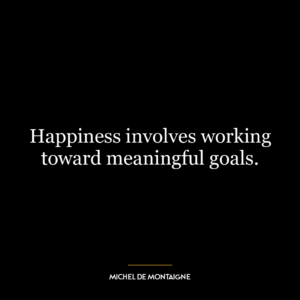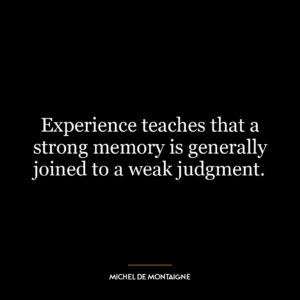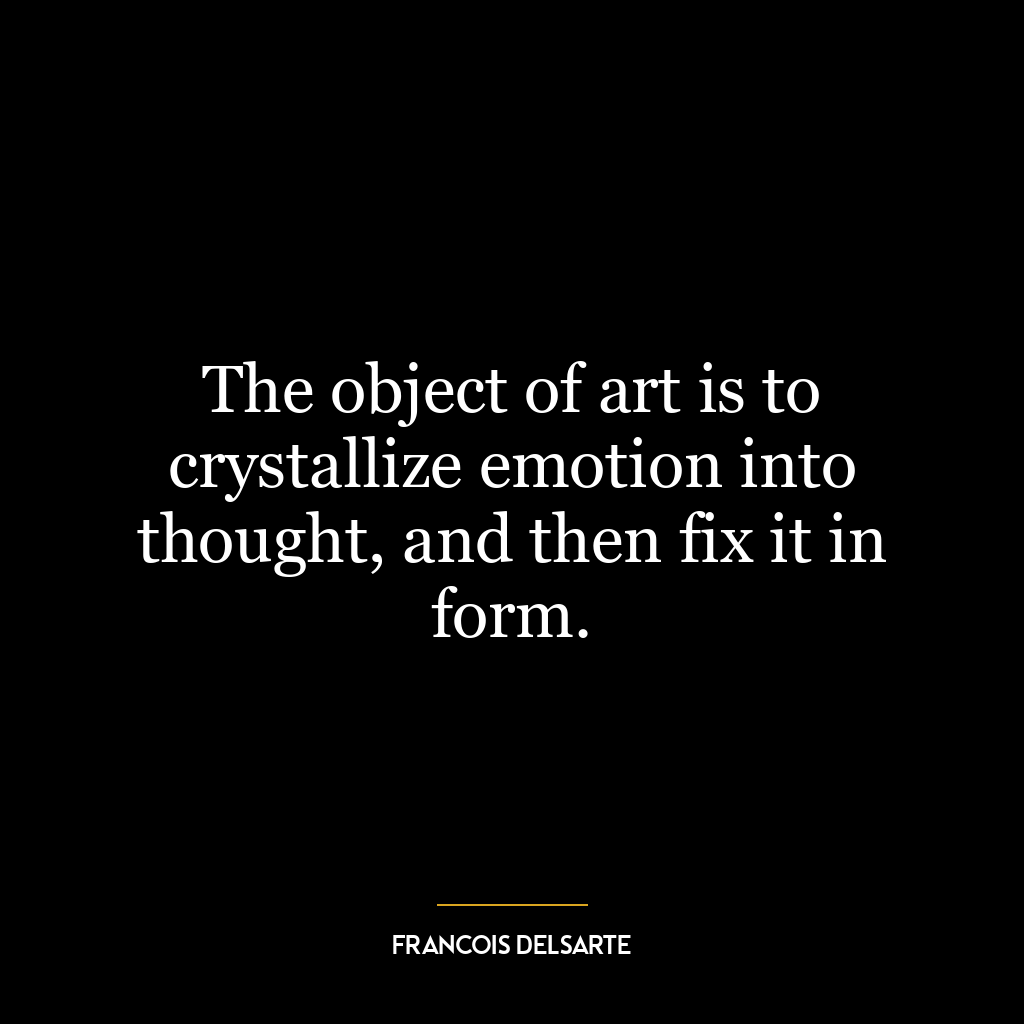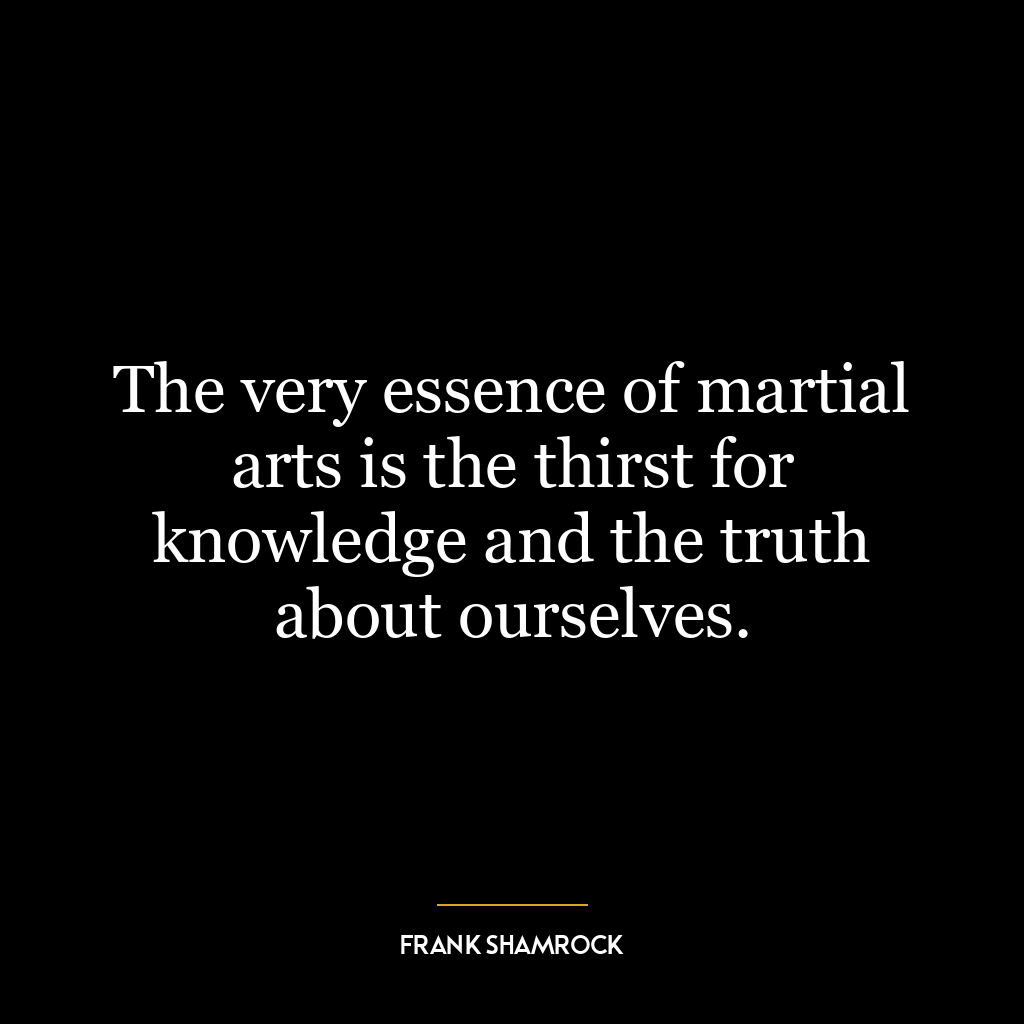To understand via the heart is not to understand.
This quote, “to understand via the heart is not to understand,” suggests that emotions can cloud our judgment and prevent us from understanding a situation objectively. It implies that feelings and passions,while valuable in many aspects of life,can sometimes distort reality or truth.
the heart here symbolizes emotions, sentiments, desires, and personal biases.When we ‘understand via the heart’, we are viewing situations through the lens of these emotional influences. This can lead to subjective interpretations rather then objective understanding.For instance,if you love someone deeply (an emotion of the heart),you may overlook their flaws or justify their wrongdoings because your affection for them clouds your judgment. In this case, you’re not truly understanding them as thay are – with all their strengths and weaknesses – but rather seeing an idealized version based on your feelings for them.
Applying this idea in todayS world could mean striving for objectivity in our interactions and judgments. In a time when information is readily available but also easily manipulated or misrepresented (like fake news), it’s crucial to separate facts from emotions when forming opinions about events or people.
In terms of personal advancement, it encourages us to practice critical thinking and self-awareness.It asks us to recognize when our emotions might be influencing our perceptions unduly so we can strive towards a more balanced outlook. For example: Are we rejecting criticism as it’s invalid or because it hurts? Are we favoring one job offer over another due to better perks (emotional appeal) even though another offer aligns better with our long-term goals?
In essence: Feelings are critically important guides in life but they shouldn’t be sole arbiters of truth or understanding; reason must have its say too.

